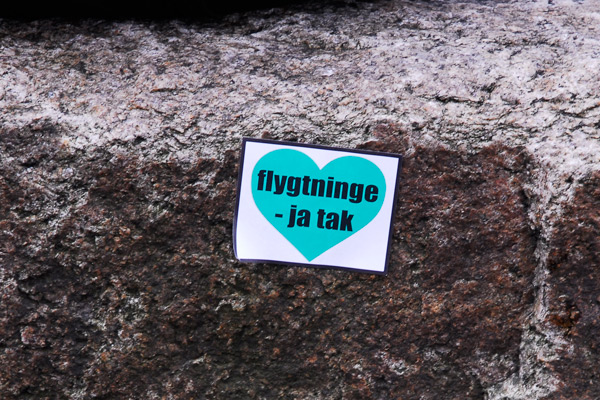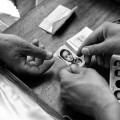The confiscation of assets from asylum seekers in Denmark: Only a symbolic tip of the iceberg
On Tuesday January 26th the Danish Parliament passed a bill which aims to alter the whole Danish asylum system. The reform has sparked great criticism in Europe and the United States because it includes a provision which allows the Danish State to confiscate assets from the asylum seekers hosted in the country as a payment for the welfare benefits that the Danish government provides them with. The symbolism of such action does not need further explanation, but the new Danish reform is not just about symbolism.
Asylum Corner talked to Eva Singer, Head of the asylum unit of the Danish Refugee Council (DRC), to try to examine the law deeper and understand what is really at stake for refugees in the northern country. “One of the major problems is the change in the law concerning family reunification. According to the new bill, some groups of refugees will not be able to apply for family reunification for the first three years of their stay in Denmark. From a legal perspective, this is a violation of article 8 of the European Convention on Human Rights” claims Singer. “By groups, I mean people who are granted the so-called Temporary Subsidiary Protection, who at the moment are mostly Syrian men who don’t have a personal reason to leave their country but rather flee Syria because of the general violence of the civil conflict”.
According to Singer, another important change envisioned in the reform is the abolition of the State funds, which facilitate family reunification. “Until now, if you were recognized as a refugee in Denmark and your family was granted the right to family reunification, the State would pay for their journey to Denmark. In a way, the Danish government decided to harmonize this provision with other states that do not pay for such journeys. But it is indeed problematic, because if you are a refugee and you can reunify your family but cannot afford it, the right of family reunification loses its meaning”.
Another problem that was not discussed internationally but which raises major concerns for the DRC is the changes in the area of detention of asylum seekers in cases of massive influxes of refugees in the country, which was in fact adopted by the Parliament before Christmas.
The reform is then a general overhaul of the Danish asylum system and will rule on thirty-four sectors of the asylum legislation. As for the director of the Danish Institute for Human Rights interviewed by the BBC yesterday, as well as for the DRC the turmoil created around the confiscation issue was greatly exaggerated when compared with the many other provisions included in the bill “which will have a much more direct impact on the rights of refugees”, says Singer. “We believe that the seizure of assets would not have a real effect on reality”, especially since “there are no studies conducted on the actual amount of money which asylum seekers carry. Also in terms of the methods of confiscation, everything is very unclear at the moment”. The confiscation of non-personal assets is, then, more a symbolic than a really problematic issue. And probably the great resonance that it was granted internationally will help the Danish government achieve its first and foremost objective: deter asylum seekers from reaching Denmark.





